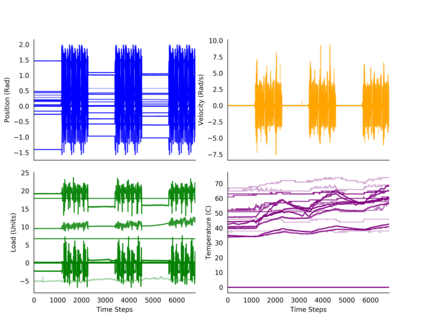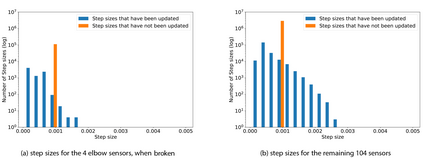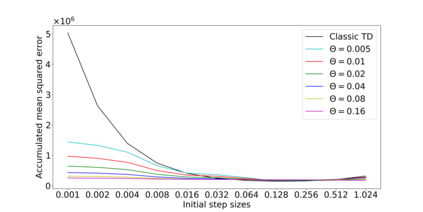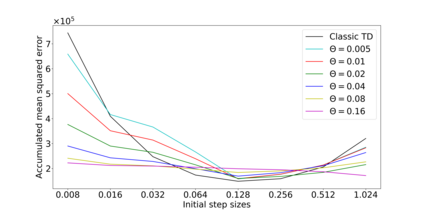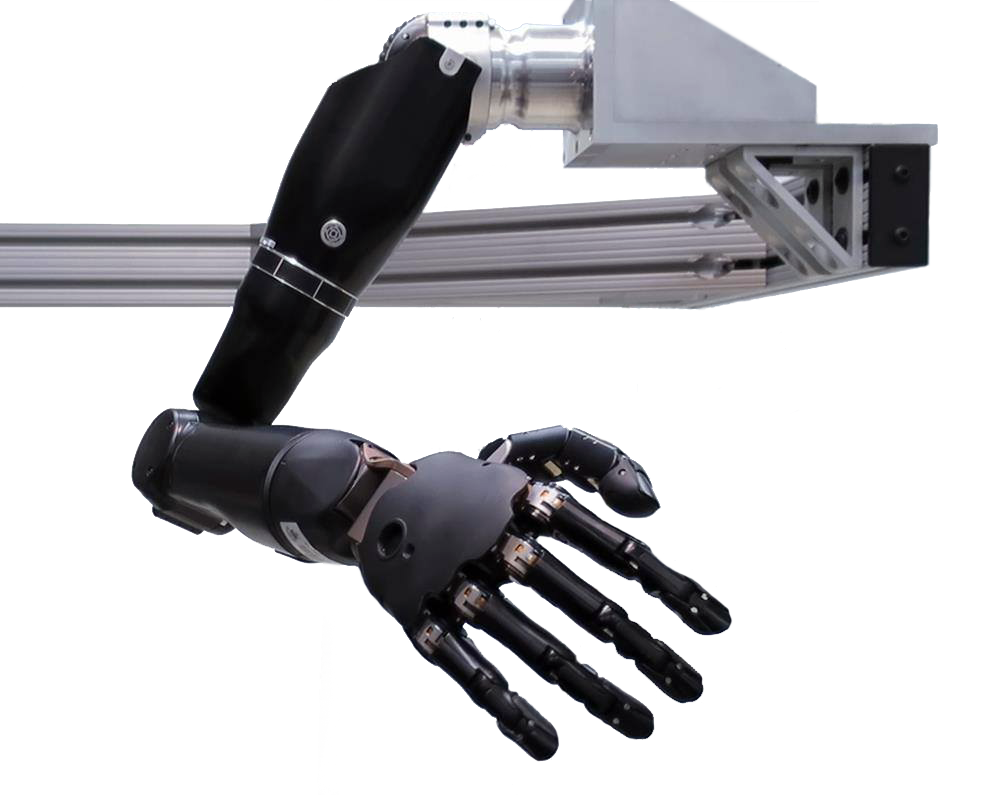Predictions and predictive knowledge have seen recent success in improving not only robot control but also other applications ranging from industrial process control to rehabilitation. A property that makes these predictive approaches well suited for robotics is that they can be learned online and incrementally through interaction with the environment. However, a remaining challenge for many prediction-learning approaches is an appropriate choice of prediction-learning parameters, especially parameters that control the magnitude of a learning machine's updates to its predictions (the learning rate or step size). To begin to address this challenge, we examine the use of online step-size adaptation using a sensor-rich robotic arm. Our method of choice, Temporal-Difference Incremental Delta-Bar-Delta (TIDBD), learns and adapts step sizes on a feature level; importantly, TIDBD allows step-size tuning and representation learning to occur at the same time. We show that TIDBD is a practical alternative for classic Temporal-Difference (TD) learning via an extensive parameter search. Both approaches perform comparably in terms of predicting future aspects of a robotic data stream. Furthermore, the use of a step-size adaptation method like TIDBD appears to allow a system to automatically detect and characterize common sensor failures in a robotic application. Together, these results promise to improve the ability of robotic devices to learn from interactions with their environments in a robust way, providing key capabilities for autonomous agents and robots.
翻译:预测和预测知识最近不仅在改进机器人控制方面取得了成功,而且在改进从工业流程控制到改造等其他应用方面也取得了成功。使这些预测方法非常适合机器人的属性在于,这些预测方法可以在线学习,并通过与环境的相互作用逐步调整。然而,许多预测-学习方法的剩余挑战在于如何适当选择预测-学习参数,特别是控制学习机器对其预测(学习率或步数大小)进行更新的规模的参数。为了应对这一挑战,我们研究了利用感官丰富机器人臂进行在线逐步适应的使用情况。我们的选择方法,即Timal-Defference 递增的三角洲-德尔塔(TIDBD),在功能层面学习和调整步数大小;重要的是,TIDBD允许在同一时间进行逐步调整和代表学习。我们表明,TIDBD是典型的温度-差异(TD)通过广泛的参数搜索学习的实用替代方法。两种方法在预测机器人数据流的未来方面都具有可比性。此外,使用逐步差异-差异-差异-差异-差异-差异-三角-德尔塔(TIDBD),在特性层面学习和跨级互动能力上自动测试系统,从测试到自动测试-测试-测试-测试-测试-测试-测试-测试-测试-测试-测试-测试-测试-测试-测试-测试-测试-测试-测试-测试-测试-测试-测试-测试-测试-测试-测试-测试-测试-测试-测试-测试-测试-测试-测试-测试-测试-测试-测试-测试-测试-测试-测试-测试-测试-测试-测试-测试-测试-测试-测试-测试-测试-测试-测试-测试-测试-测试-测试-测试-测试-测试-测试-测试-测试-测试-测试-测试-测试-测试-测试-测试-测试-测试-测试-测试-测试-测试-测试-测试-测试-测试-测试-测试-测试-测试-测试-测试-测试-测试-测试-测试-机能能能能能能能能能能能能、测试-测试-测试-测试-测试-测试-测试-测试-测试-测试-测试-测试-测试-测试-测试-测试-测试-测试-测试-测试-测试-测试-测试-测试-测试-测试-测试-测试-测试-测试-测试-测试-测试-


